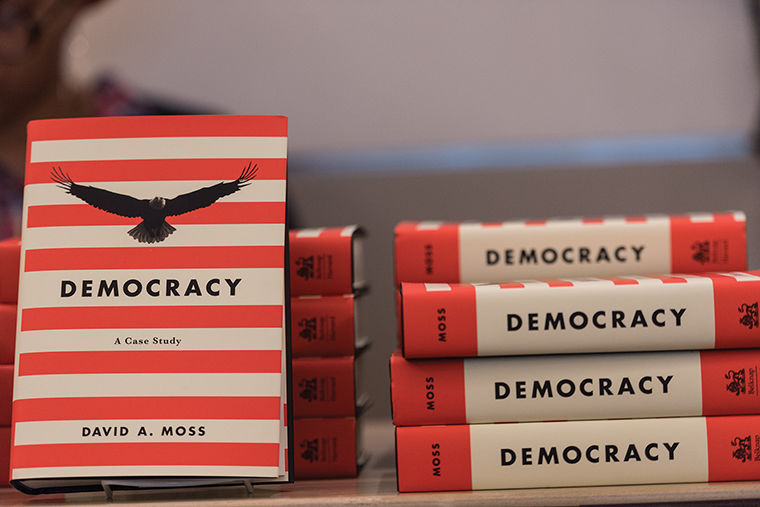Expert says democracy is in trouble, has been for decades
David Moss discussed the history and future of democracy and his new book “Democracy: A Case Study, at a March 6 University of Chicago Booth School of Business event.
March 13, 2017
Recent concerns over the current state of American democracy are warranted, but the loss of confidence in the system began long before the controversial 2016 presidential election, according David Moss, a professor at the Harvard School of Business.
“We may have lost track of what most powerfully binds us together, and that is this common faith in democratic self-governance and commitment to the nation’s democracy,” said Moss, who was the guest speaker at a March 6 discussion at the University of Chicago Booth School of Business, 5807 S. Woodlawn Ave.
Moss, whose book, “Democracy: A Case Study,” was published by the Harvard University Press Feb. 1, considered the history of American democracy and whether it is in danger.
Every major democratic decision going back to the creation of the U.S. Constitution was riddled with conflict and tension, but that is crucial to a healthy democracy, according to Moss.
“Debates over gun rights, health care and abortion aren’t an exception to the rule; they are the rule,” Moss said. “The exception is when people agree, and when there is consensus about policy.”
Moss said Americans’ distrust and lack of faith in the federal government is related to its increasing power without adding more democratic procedures. However, confidence in state and local government has remained steady because of opportunities for civic input and engagement, he added.
Carlton McGee, a social entrepreneur who attended the discussion, said the media has a duty to educate the public on current affairs but has fallen short of doing that in the past.
“[The media’s] job is to be the full-time guardians of what these decision makers and policymakers are doing,” McGee said.
According to Moss, other factors such as the absence of civic education and lawmakers’ unwillingness to explain policy decisions have also contributed to the diminished trust in democracy.
Moss referenced a Gallup poll conducted each year between 1974 and 2015, which asked Americans how much confidence they had in their fellow Americans to make judgments under the democratic system. Fifteen percent said “not very much” or “none at all” when the poll started. However, in 2015, that number had dramatically escalated to 43 percent.
Moss said Americans’ distrust in its democratic system opened the door for populism, nationalism and the rise of PresidentDonald Trump.
Reintroducing civic education in schools and engaging the public through juries could supply some solutions to the civilian and federal government division, Moss said.
“It would have a lot of moral authority, and people would pay attention to the actual citizens,” Moss said.
John Mulholland, who recently retired from the University of Chicago D’Angelo Law Library and attended the discussion, said he wanted answers on the individual’s role in this discussion on democracy.
“What is [Moss] calling upon the individual to do?” Mulholland asked. “Is he calling on the individual to be more contentious?”
Moss said democracy relies completely on the individual, and beyond protesting Trump and writing to a senator, Americans need to work to rebuild democracy and be open to other points of view.
“You should do all of those things, but you also need to simultaneously think about how you build bridges between the people who don’t agree with you,” Moss said.








